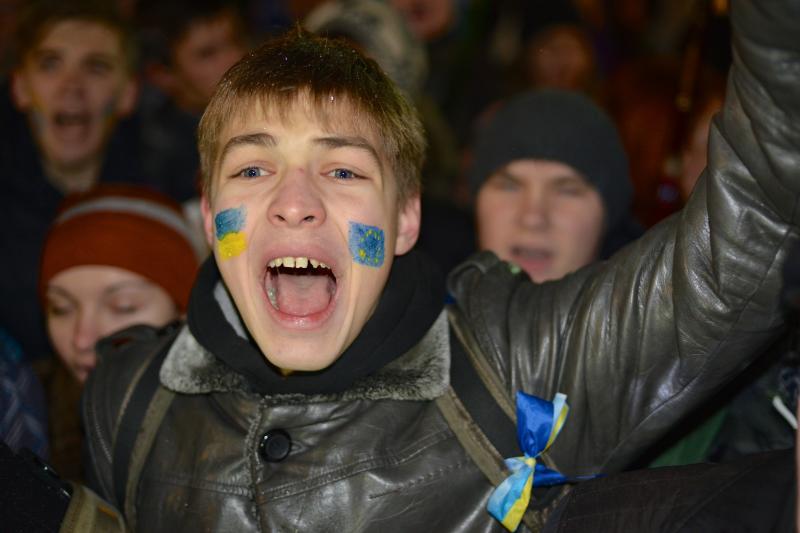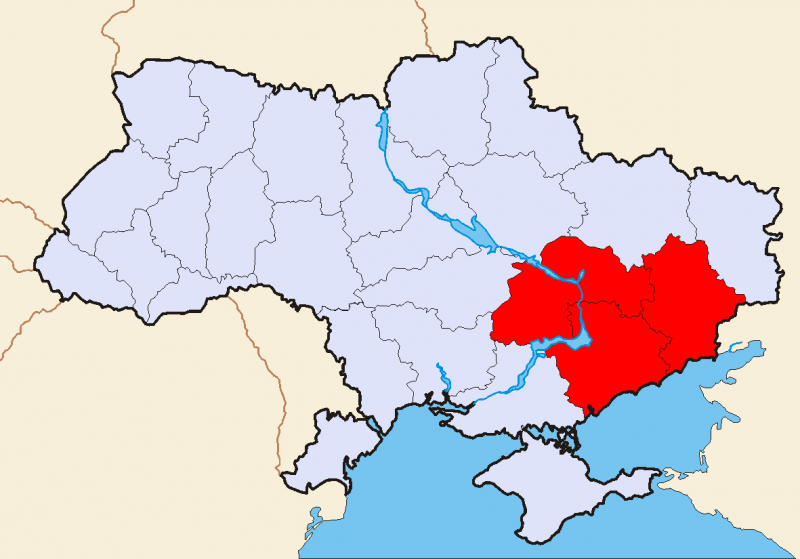Ukraine's Anarchist Past

Putin called the treaty a return of Crimea to its rightful owners, a righting of a “historical injustice.” It’s a wobbly assertion, but what is true is that the conflict in Ukraine has exhumed plenty of historical analysis and anecdote. The Crimean resort city of Yalta, where post-World War II peace talks took place, has been a favorite topic of discussion. Not to mention Khrushchev’s ill-advised gifting of Crimea to Ukraine in 1954, the historical origin of the entire conflict.
SEE ALSO: Ukraine Crisis Timeline: How It Unfolded
What hasn’t been discussed as thoroughly, however, is the fact that before the conflicts of the Soviet era, Ukraine’s aspirations were actually closely aligned with the Russian state. In fact, after World War I, part of Ukraine succeeded in becoming a Marxist’s dream.
It’s true. Karl Marx wrote of a day when communism would abolish the need for government, creating a free society of workers. As it turns out, Ukraine did just that. It was an anarchist utopia, and it was called the Free Territory, or, more fantastically, Makhnovia.
It began during the Bolshevik revolution of 1917, when the Russian tsar was overthrown and communism spread through the Eastern bloc. In Ukraine, Bolsheviks clashed with nationalists over the fate of the region. Enter Nestor Makhno, leader of the proletarian Makhnovists. Taking advantage of the chaos, Makhno led his group of laborers to take a piece of Southern Ukraine, converting it to the anarchist state of Makhnovia.
Makhnovia, which existed 1917-1921, was populated by “free worker-peasant soviets,” and organized around free exchange and free communities. Makhno advocated for the individual’s right to personal liberties, and, at least publically, outlawed police and militia.

Today, Makhnovia is little more than a brief footnote in Ukraine’s turbulent history. The memory of Makhno’s surprisingly successful attempt at a stateless state is left to Anarchist blogs seeking proof for their social theories.
Given the situation in Crimea, however, it’s useful to revisit the plight of Makhnovia. After all, the stories of Makhnovia and Crimea are not all that different. Both regions represent extreme expressions of autonomy; Maknovia with its anarchist ideology, and Crimea with its blatant defiance of international law. Both regions took advantage of general Ukrainian upheaval, and used it to push their more radical political agendas.
There are philosophical connections as well.
The dream of absolute freedom that Makhnovia sought to accomplish in Ukraine is the same idealistic dream now fueling the boldness of Crimea’s Russian population, who are looking to take political authority into their own hands. It’s also the same dream alive in greater Ukraine, pushing forward their ambition to create a cohesive whole from its ethnically divided parts.
From independence, to Makhnovia, to revolution, to the recent overthrow, Ukraine has earned a unique and intense relationship with autonomy and freedom. Whether or not that is enough to see them through the current crisis is uncertain. Russia seems intent on repeating their own history, quelling Ukrainian dreams and continuing their centuries-long push for a warm water port. Maintaining access to the Black Sea from southern Ukraine is an interest that has inspired much of Russia’s foreign policy, from the Crimean war in the 1800’s to WWI and II. Protecting their influence over the Crimean port of Sevastopol was what ultimately led the Bolsheviks to bring down Makhnovia, and is now one of the reasons that Russia wants to annex Crimea. Anecdotes like the story of Makhno and his anarchists make it clear that the battle being fought today is a historical one, and one that will most likely be repeated in the near future.
Stay updated with Neon Tommy's continued coverage of the Ukraine Crisis.



